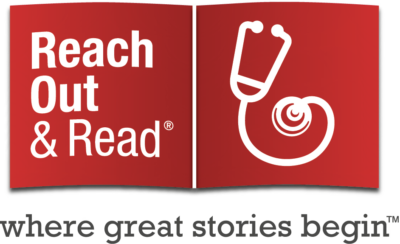Early Brain and Child Development
The promotion of early brain and child development (EBCD) is an essential element of pediatric care. Coupled with supporting the development of a positive, nurturing relationship between the parent and child, health professionals must foster a strong foundation for children’s lifelong learning, behavior and health. The basic science is clear: during the first few years of life, safe, stable, and nurturing relationships promote healthy brains by decreasing toxic stress and encouraging foundational mental skills.
Overview
Recent scientific advances are driving a paradigm shift in the understanding of how child development impacts human health and disease across the lifespan. Early social and environmental experiences (the ecology) and the genetic predispositions (the biology) influence the development of adaptive behaviors, learning capacities, lifelong physical and mental health, and future economic productivity. (AAP)
- Child development is the foundation for community and economic development.
- Brains are built over time – prenatally to young adulthood.
- Brain architecture is built in a cumulative, bottom-up manner; a solid foundation is required for future skills.
- A dynamic dance between genes and experience shapes the architecture of the developing brain.
- Brain development is integrated; the areas underlying social, emotional and learning skills are inextricably connected and rely upon each other.
- Toxic stress disrupts the developing brain and has lifelong effects on learning, behavior, and health.
- Positive parenting and nurturing emerging social, emotional, and language skills buffers toxic stress and builds resilience by promoting healthy, adaptive coping skills.
- Creating the right conditions in early childhood is more effective and far less costly than addressing a multitude of problems later on in life. (AAP)
Early Childhood Development Programs
Early childhood development is a strategic priority for the Wisconsin chapter of the American Academy of Pediatrics. The Chapter is involved in three key programs that actively work to enhance child health and development in the first 1,000 days after birth. These programs include:
The Governor’s Early Childhood Advisory Council (ECAC)
Since 2008, WIAAP has played a key role on the Early Childhood Advisory Council (ECAC), whose mission is to ensure that all children and families in Wisconsin have access to early childhood programs and services. Each year, the Council submits an annual report to the Governor and state legislators with policy recommendations that support these goals. The 2018 Annual Report outlined three “Smart Investments” for our state: Home Visiting Expansion and Early Childhood Workforce Tax Credit.. The 2017-2019 biennial budget provided significantly increased funding for home visitation.
Council responsibilities include:
- Conducting a periodic, statewide needs assessment concerning the quality and availability of early childhood education and development programs.
- Identifying opportunities for, and barriers to, collaboration and coordination among Federally-funded and State-funded child development, child care, and early childhood education programs and services.
- Develop recommendations for increasing the overall participation of children in existing Federal, State, and local child care; and early childhood education programs including outreach to underrepresented and special populations.
- Develop recommendations regarding statewide professional development and career advancement plans for early childhood educators in the state.
Infant and Early Childhood Mental Health
Did you know that strong mental health begins right away with infants, toddlers and preschoolers? Early relationships matter. Our youngest children and their caregivers benefit from early intervention and strategies to build safe, nurturing environments for families.
Infant Mental Health is the developing capacity of the child from birth to five to:
- Experience, regulate and express emotions
- Form close and secure interpersonal relationships
- Explore the environment and learn
… all in the context of family, community and culture. (Adapted from Zero to Three’s Infant Mental Health Task Force, 2002.)
Wisconsin Early Childhood Collaborating Partners (WECCP)
In 2008, WIAAP joined the Healthy Children Committee of the Wisconsin Early Childhood Collaborating Partners (WECCP), focused on collaboration among diverse early childhood partners and supported by braided funding among the Wisconsin Departments of Children and Families (DCF), Health Services (DHS) and Public Instruction (DPI). WECCP began in 1994 and currently supports six regional collaboration coaches across the state, including five cross-sector regional action teams focused on communities of practice for the Wisconsin Model Early Learning Standards, Pyramid of Social and Emotional Competence and professional development networks.
The Healthy Children Committee has published three editions of its “Comprehensive and Aligned System for Early Childhood Screening and Assessment: Wisconsin’s Blueprint.” At the 2017 Preserving Early Childhood Conference, WIAAP and DHS presented the 3rd Edition, as promoted by ourselves, all three state departments, Prevent Blindness Wisconsin, the Waisman Center and the Wisconsin Dental Association.
The Blueprint, whose periodicity schedule is based on that of AAP’s Bright Futures, serves to define more broadly terms and practices with the understanding of the complexities of a screening and assessment system. This shared vision empowers primary and behavioral health care, early care and education, Head Start, home visiting, and Individuals with Disabilities Education Act (IDEA) disability programs.
The 4th Edition of the Blueprint is scheduled for release early in 2019.
For more information, visit the American Academy of Pediatrics health initiative page on EBCD
Reach Out and Read
More than 30 percent of Wisconsin children enter kindergarten without the skills they need to learn to read. Studies show that 88 percent of these children never catch up. Children living in low-income families are particularly at risk. Learning to read impacts more than just a child’s school performance. It impacts rates of youth school retention, juvenile delinquency and teen risk behaviors.
Reach Out and Read is a national, evidence-based early literacy program implemented in medical clinics during pediatric well visits.
Reach Out and Read Wisconsin provides technical assistance, quality assurance and book support to participating programs, and works to expand the number of children served. More than 210 participating clinics provide early literacy guidance and support services to more than 109,000 children and families a year and distribute more than 187,000 new, developmentally- and culturally-appropriate books each year, including 1 in 6 children living in poverty.





